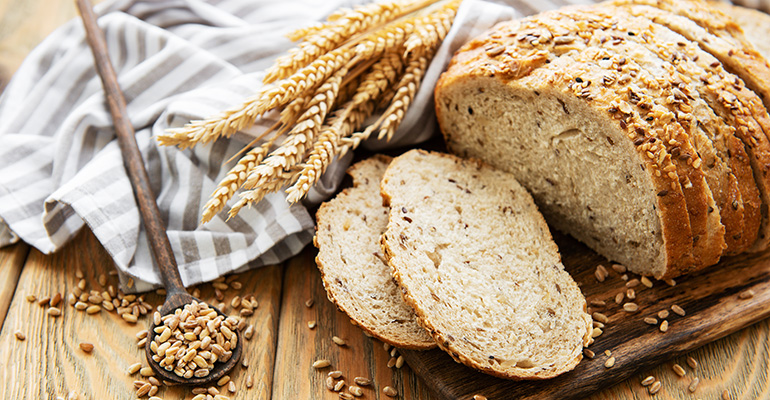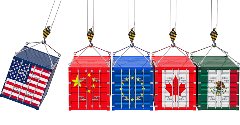News
Fibre-filled bread leads health-conscious baked buys in Asia
17 Jun 2024Value revolves around better-for-you bakery claims and nutritious seed-rich loaves as consumers seek less sugar and more fibre from their baked goods, according to Mintel.
Bread brands are improving the fibre content of their products to appeal to consumer demands for healthier and more nutritious baked goods. Ongoing demands for sugar reduction in Asia are leading manufacturers to create new bread products and other baked items with lower sugar levels.

Clear marketing claims to communicate products’ fibre-rich and sugar-reduced content are needed to stand out on supermarket shelves.
Replacing sugar with fibre
Lowering sugar quantities in bakery and bread products is now a high priority. Consumers want to see manufacturers and brands reflect these demands with new product developments (NPD) that reflect their calls for less sugar.
Health-conscious consumers worry about their sugar intake and want healthier bread and baked goods. Health conveys value at the checkout. In Thailand, over a third (35%) of consumers are willing to pay more for bakery products with health claims, such as those with reduced added sugar, market research company Mintel finds in its May 2024 Bread Innovation report.
In Asia, consumers may be shunning sugar, but they don’t necessarily want fewer ingredients in their products. Instead, they want more of what they perceive as nutritious ingredients. There’s therefore a captive audience for baked goods with fibre. Market research company Mintel found that 40% of Chinese consumers are interested in packaged baked goods that contain dietary fibre.
Yet, while consumers crave sugar reduction in their new bread formulations, they don’t want to compromise on organoleptic properties, including taste and texture. Therefore, manufacturers need to optimise the use and application of fibre in bread and baked goods with less sugar to maintain their sensory appeal.
Due to its favourable sugar-mimicking mouthfeel and texture properties, soluble fibre like oligofructose can be used in bread-based products as an effective alternative to sugar.
New fibre-rich launches
Manufacturers are using ingredients like peas, barley, and millet to highlight the high fibre content of their bread products.
Brands are responding to consumer health consciousness and concerns by launching products with reduced sugar content and rich fibre. South Korean baked goods brand Samlip Bread launched its 31 Sliced Bread variety, which, as the name suggests, contains 31 types of grains and seeds. Designed to form part of a new healthier-for-you bread range, the product is high in fibre and low in sugar.
Baked goods manufacturers are sharing their products’ fibre content with consumers in various ways. Japan-based Yamazaki Chohojun Loaf with Dietary Fibre has launched a bread product containing the recommended daily fibre nutrients. With 5.8g of dietary fibre per slice, the product contains soluble and insoluble fibres, providing a chewy texture.
Bread brands are also drawing attention to fibre-rich products using ingredients low in glycaemic index (GI) and high in fibre references. Chinese brand Slowgar Cheese Flavour Bread focuses on creating products that are low in GI and high in fibre for consumers worried about their blood sugar health.
Clear nutrition guidance is needed
While bread with a higher fibre content than traditional baked goods may be sought after, finding it on the shelves or online isn’t as easy. There’s a gap in demand for fibre-rich bread and the manufacturers actively formulating it, as well as uncertainty around how consumers can eat more fibre in their diet. Over a third (35%) of consumers in China say it’s hard to know if they consume sufficient dietary fibre in their daily diets.
New bread products with high or added fibre claims in Asia are still niche. Yet, with steady growth and ever-present consumer demand, there’s more attention on how brands can get across their products’ high-fibre content to consumers.
Front-of-pack messaging claims highlighting bread's high-fibre content remain limited. With consumers unclear about how bread products higher in fibre contribute to daily fibre intake, more on-pack information can help build consumer awareness and confidence.
Better-for-you and less sugar
Taste, ingredient and nutrition company Kerry undertook its Sensibly Sweet survey among more than 12,000 consumers in 24 countries, including Indonesia, Thailand, Malaysia and Vietnam. Kerry identified the ‘reduced sugar seeker’ as a primary consumer profile in Southeast Asia.
The vast majority (86%) of participants in Southeast Asia confirmed they had concerns about sugar overconsumption leading to diabetes. Over 70% of consumers said they wanted to lower their sugar intake to enjoy a quality of life and 62% are actively cutting the amount of sugar they eat to avoid potential health impacts.
Malaysia announced the arrival of its Sugar Reduction Advocacy Campaign in November 2023 to tackle excess sugar consumption.
Elsewhere in Asia, after delays, the Ministry of Health Singapore introduced its Nutri-grade labelling system to implement graded labelling to visually indicate a product’s sugar content. The move has encouraged producers to reformulate their products with less sugar, yet currently, the labelling system applies to sugar-sweetened beverages. With consumers in Asia wanting health-conscious launches, it prompts baked and bread brands to rethink how much sugar they put into their product developments.
Related news

Future F&B flavours favour exploration and explosive taste profiles
25 Mar 2025
Exploration and experimentation will define the future of flavour, according to Mintel, as consumers seek out taste profiles and textures that offer an adventurous eating experience.
Read more
Partnership plans to scale cultivated meat production
21 Mar 2025
Food technology innovator Ever After Foods (EAF) and multinational food leader Bühler are striving to overcome hurdles to access and accelerate the development of cultivated meat.
Read more
Global consumers enjoy food less and perceive it as less healthy
20 Mar 2025
Enjoyment of food and its perceived healthiness is dwindling among most global populations, according to findings from Gallup and Ando Foundation/Nissin Food Products.
Read more
Seafood set to ‘dethrone’ poultry as protein growth king
19 Mar 2025
Seafood is poised to surpass poultry as the leading contributor to global protein supply growth this year, according to Rabobank’s latest protein outlook.
Read more
Tariff volatility leaves food manufacturers in limbo
11 Mar 2025
Rapid US trade policy shifts and tariff escalations are creating uncertainty for food manufacturers and ingredient suppliers.
Read more
F&B industry hit with fresh greenwashing claims
26 Feb 2025
The food and beverage (F&B) industry is under fresh scrutiny amid claims of greenwashing, with Arla the latest company in the firing line.
Read more
Protein diversification: A massive missed market?
20 Feb 2025
Germany and the UK could be missing out on the massive market for alternative meats and proteins, with one new coalition calling for an end to the “steak-tofu struggle”.
Read more
Have scientists discovered a new tool to measure UPFs?
19 Feb 2025
Researchers have developed a new scoring system and database, compiling over 50,000 food items, of which over 1,000 are classified as ultra-processed.
Read more
China ramps up cultivated meat research with new innovation base
18 Feb 2025
China has opened its first fermentation and cultivated meat research centre in Beijing.
Read more
Most consumers lack trust in AI, but supplement users are ready to embrace the technology
14 Feb 2025
A survey of UK and US consumers found that most supplement users are willing to let AI make decisions on their behalf, but they also demand greater transparency.
Read more